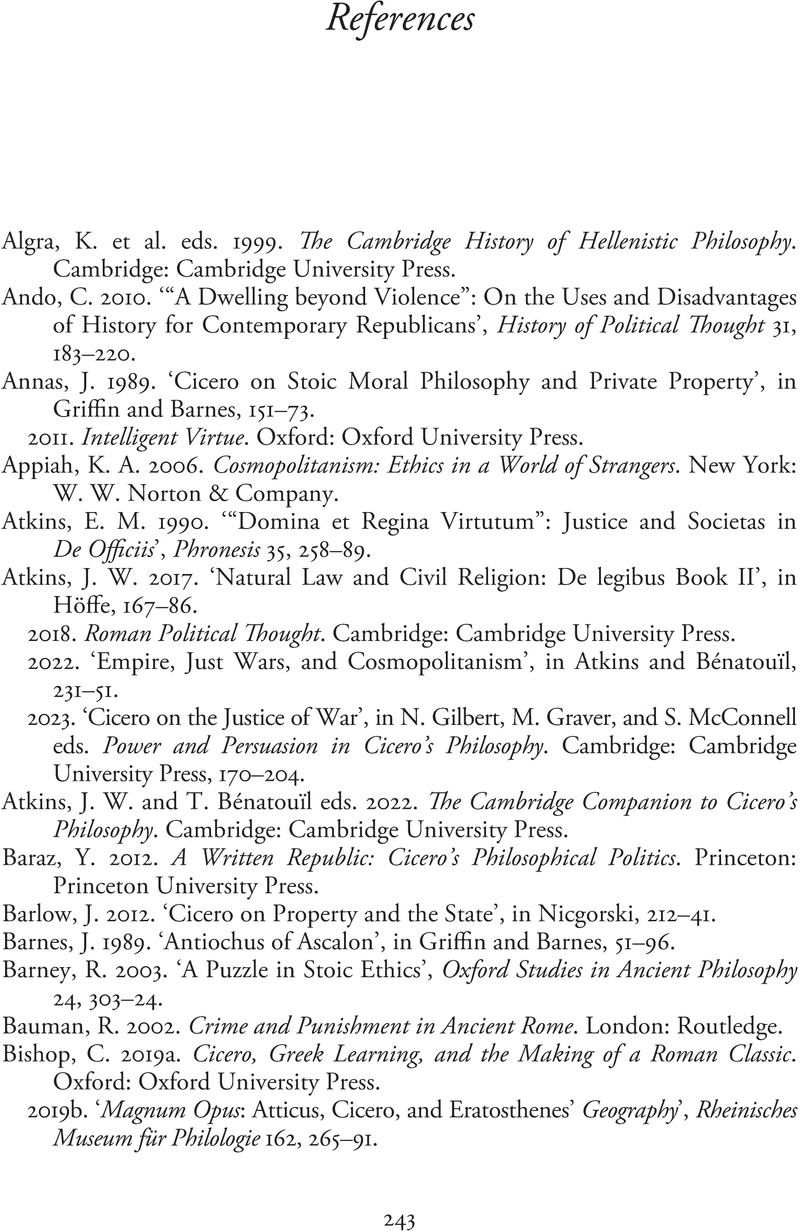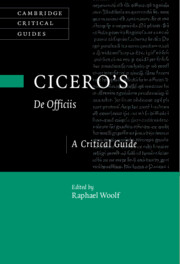Book contents
- Cicero’s De Officiis
- Cambridge Critical Guides
- Cicero’s De Officiis
- Copyright page
- Contents
- Contributors
- Acknowledgements
- Abbreviations
- Introduction
- Part I The Framework of De Officiis
- Part II The Role of Virtue
- Part III Exemplary Ethics
- Part IV Self and Society
- Part V Politics
- References
- Index
- Cambridge Critical Guides
- References
References
Published online by Cambridge University Press: 15 June 2023
- Cicero’s De Officiis
- Cambridge Critical Guides
- Cicero’s De Officiis
- Copyright page
- Contents
- Contributors
- Acknowledgements
- Abbreviations
- Introduction
- Part I The Framework of De Officiis
- Part II The Role of Virtue
- Part III Exemplary Ethics
- Part IV Self and Society
- Part V Politics
- References
- Index
- Cambridge Critical Guides
- References
Summary

- Type
- Chapter
- Information
- Cicero's ‘De Officiis'A Critical Guide, pp. 243 - 253Publisher: Cambridge University PressPrint publication year: 2023

